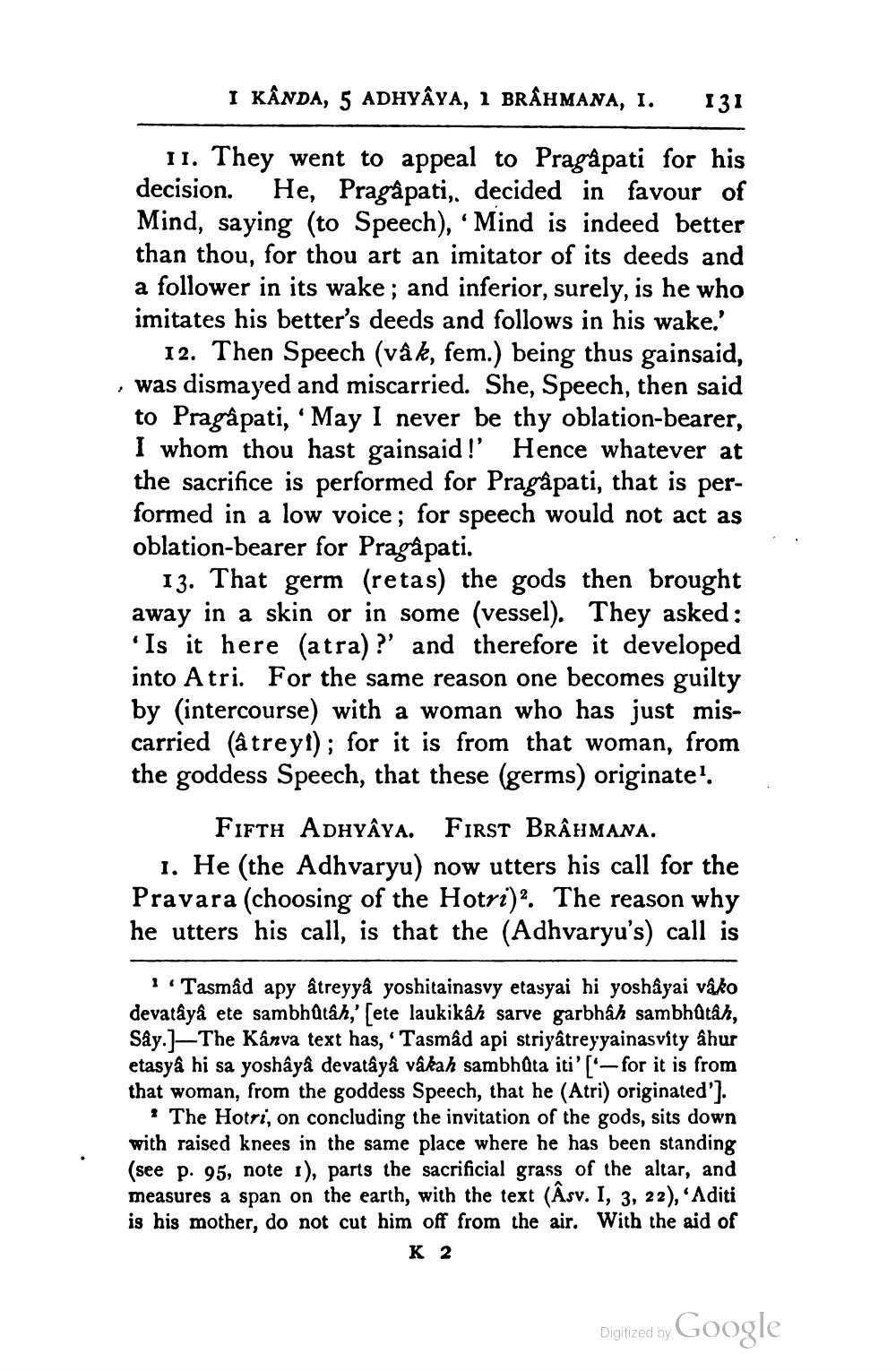________________
I KÂNDA, 5 ADHYAYA, 1 BRÂHMANA, 1.
131
11. They went to appeal to Pragàpati for his decision. He, Pragàpati, decided in favour of Mind, saying (to Speech), ‘Mind is indeed better than thou, for thou art an imitator of its deeds and a follower in its wake; and inferior, surely, is he who imitates his better's deeds and follows in his wake.'
12. Then Speech (vâk, fem.) being thus gainsaid, was dismayed and miscarried. She, Speech, then said to Pragàpati, May I never be thy oblation-bearer, I whom thou hast gainsaid !' Hence whatever at the sacrifice is performed for Pragậpati, that is performed in a low voice; for speech would not act as oblation-bearer for Pragâ pati.
13. That germ (retas) the gods then brought away in a skin or in some (vessel). They asked: "Is it here (atra)?' and therefore it developed into Atri. For the same reason one becomes guilty by (intercourse) with a woman who has just miscarried (âtreyi); for it is from that woman, from the goddess Speech, that these (germs) originate!
Fifth Adhyâya. First BRÂumana. 1. He (the Adhvaryu) now utters his call for the Pravara (choosing of the Hotri). The reason why he utters his call, is that the (Adhvaryu's) call is
1.Tasmad apy âtreyyâ yoshitainasvy etasyai hi yoshấyai vako devatâyâ ete sambhůtah,' sete laukikâh sarve garbhah sambhůtah, Sây.)-The Kânva text has, Tasmad api striyâtreyyainasvity ahur etasyâ hi sa yoshâyâ devatâyâ våkah sambhūta iti'['—for it is from that woman, from the goddess Speech, that he (Atri) originated'].
? The Hotri, on concluding the invitation of the gods, sits down with raised knees in the same place where he has been standing (see p. 95, note 1), parts the sacrificial grass of the altar, and measures a span on the earth, with the text (Âsv. I, 3. 22). Aditi is his mother, do not cut him off from the air. With the aid of
K 2
Digitized by Google




